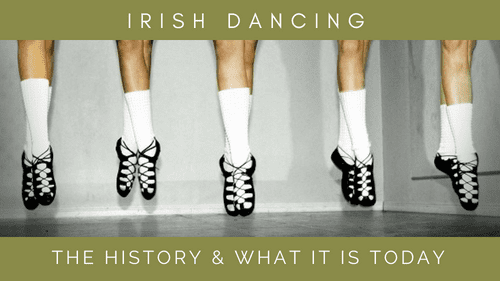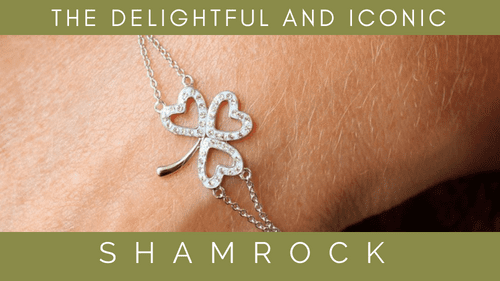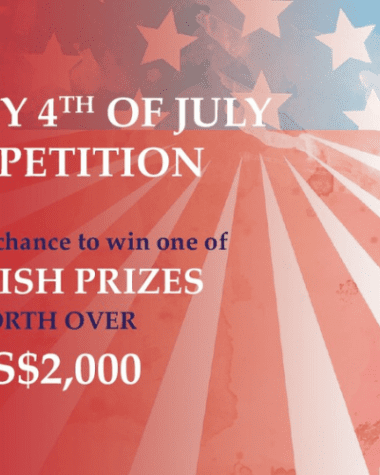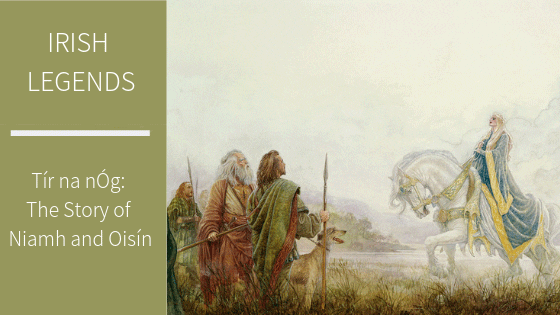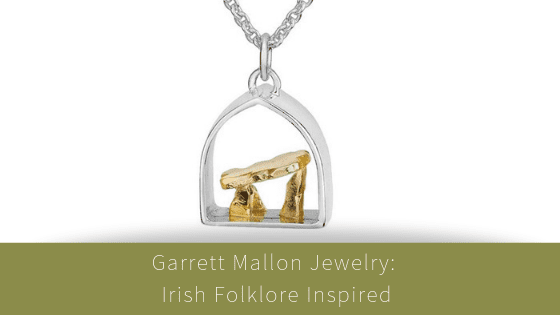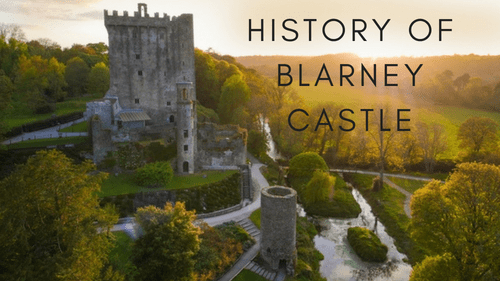The origins and history of Irish dancing is not clear, nor defined, but we can piece together bits of history that tell the tale of how Irish dancing became what it is known for today.
Ancient Origins
We can start as far back as the Druids dancing religiously to honour the Oak tree and the sun. Then the Celts arrived in Ireland over 2,000 years ago bringing with them their own types of dancing. Then when the conversion to Christianity happened, the peasants expressed their beliefs through music and dance.
The dancing in Ireland became more sophisticated and admired in the 16th century. It is said that Sir Henry Sydney wrote to Queen Elizabeth I about the dancers he saw in Galway at the time, describing them to be beautiful, magnificently dressed and first class dancers. The dances at the time were called the Irish Hey, the Trenchmore and the Rinnce Fada, which is the long dance usually performed in 2 straight lines.
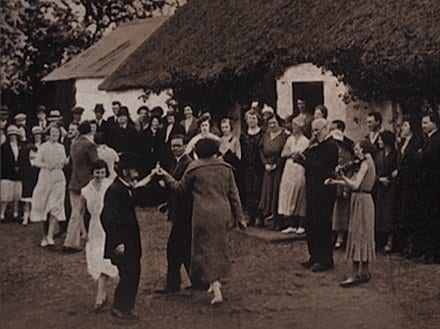
A Dance of the Old Irish Nobility
Irish dancing was performed in Great Halls and Castles all around Ireland, accompanied by music made from bagpipes and harps. When royalty arrived from other countries they were greeted by ladies dancing. Some dancers were held in high esteem and it is said that often, doors were taken off their hinges to lie on the floor for a solo dancer to dance upon.
In the 18th century Irish dancing masters started to appear in villages, teaching the dances to the community. There were often dance offs at the local markets, only ending if one of the dancing masters fell of fatigue. Variations of the dances were danced all over Ireland, including jigs, polkas, sets, halve sets and reels.
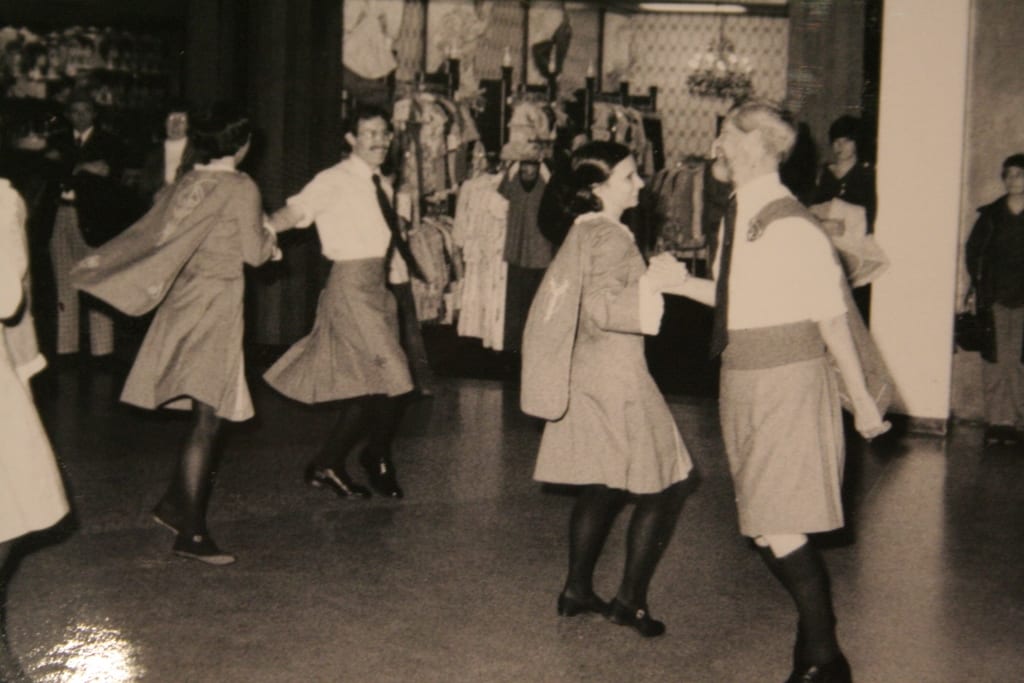
Modern Irish Dancing
Today, the costume of Irish dancing is recognised all over the world. Whilst all having similar qualities, each costume is different depending on where it is coming from. The dresses made today are inspired by those worn by peasants over 200 years ago.
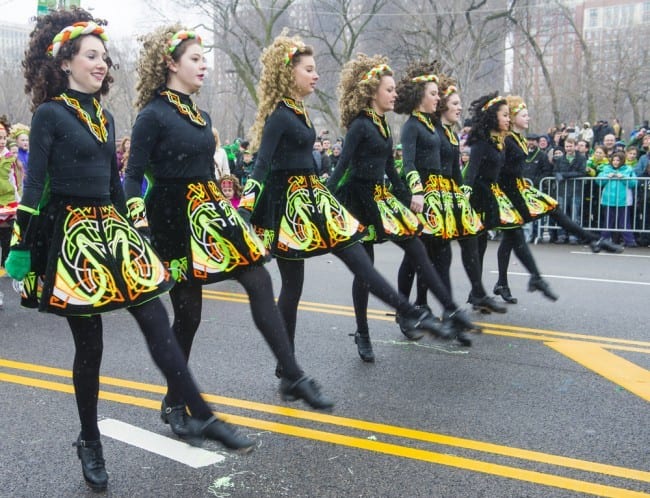
The dresses worn by women feature beautiful embroidered detailing, and a copy of the Tara brooch worn on the shoulder holding a cape which falls over the back. The outfit worn by men for Irish dancing is a kilt and jacket, with a cloak draped from the shoulder. Both men and women wear hornpipe shoes, or soft shoes depending on the type of dance.
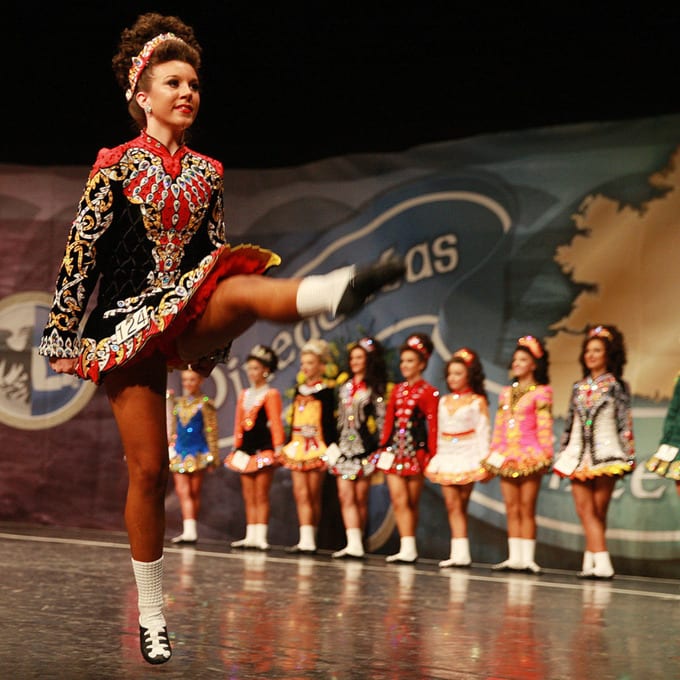
Today in Ireland there are céili’s held all over the country celebrating the traditional Irish dance, music, and storytelling. The huge success of Riverdance and Lord of the Dance has placed the traditional dances on international stages, encouraging people to partake in the dance and keep the tradition alive.
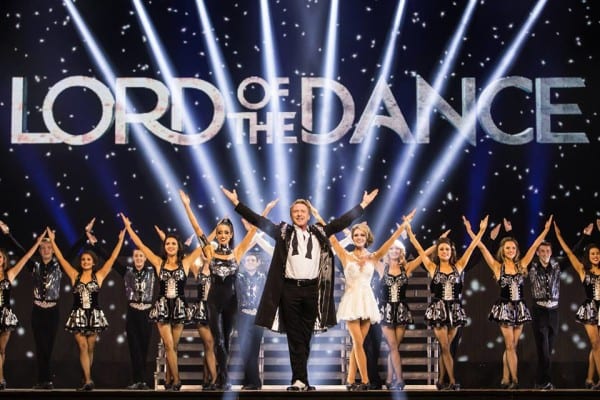
In Ireland you are never too far away from a céili, so join in, and learn to dance some Irish history.
The Blarney Woollen Mills team
Header Image from babylonradio.com
